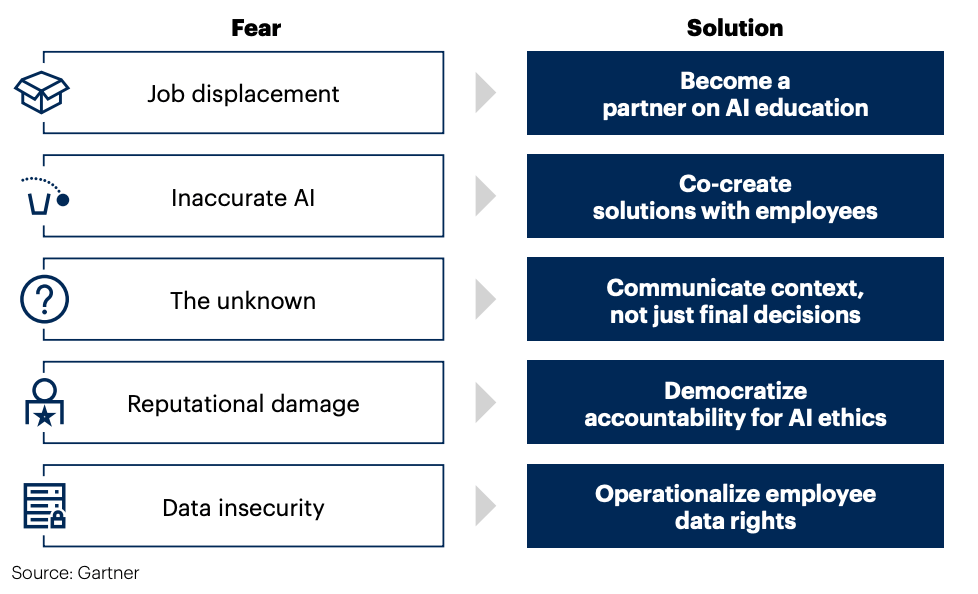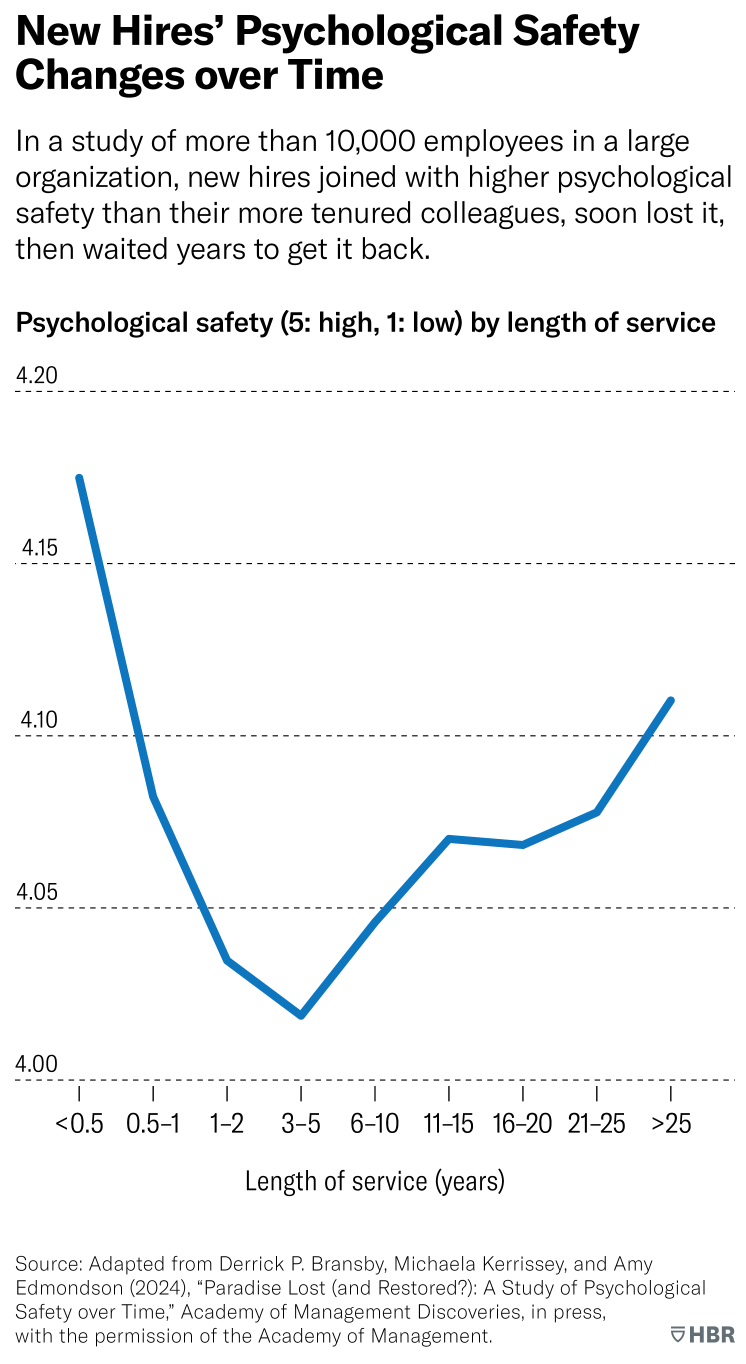- WeAreHuman@Work
- Posts
- WeAreHuman - Issue 002
WeAreHuman - Issue 002
WeAreHuman is a newsletter dedicated to fostering a more sustainable world of work.

THIS WEEK'S CONTENT
If you just want links and a brief description of the topics covered, you will find the information at a glance below. If you prefer a deeper dive, scroll down to the rest of the newsletter.
PEOPLE SUSTAINABILITY STRATEGY | Deloitte Insights | The Important Role of Leaders in Advancing Human Sustainability | This report highlights the importance of "human sustainability," focusing on how organisations can create value for their workforce by enhancing health, skills, equity, belonging, and purpose.
DIVERSITY, EQUITY & INCLUSION | MIT Sloan Management Review | Uncover the Ageism Hiding in Your Organisation | This article explores the "longevity economy" and introduces the Age AWARE Audit framework, which guides businesses in promoting inclusivity and recognising the economic value of older employees.
ETHICAL USE OF AI | Gartner | 5 Employee Fears of AI and How to Overcome Them | This report identifies employees' five main concerns about AI and provides actionable strategies to alleviate these fears, promoting smoother AI integration in the workplace.
HEALTH, WELL-BEING & PSYCHOLOGICAL SAFETY | Harvard Business Review | New Hires’ Psychological Safety Erodes Quickly | This article explores how new hires' psychological safety diminishes quickly after onboarding, revealing critical insights for organisations seeking to maintain openness and innovation in their teams.
PEOPLE SUSTAINABILITY STRATEGY | Deloitte Insights | The Important Role of Leaders in Advancing Human Sustainability | This report highlights the importance of "human sustainability," focusing on how organisations can create value for their workforce by enhancing health, skills, equity, belonging, and purpose.
DID YOU KNOW?
“Over 80% of executives surveyed believe a stronger commitment to positive human impact would boost their company's talent attraction (82%), customer appeal (81%), and profitability (81%).”
DID YOU SEE?

NEED AN EXECUTIVE SUMMARY?
Introduction
Deloitte's third annual Workplace Well-being report highlights the critical role of leaders in advancing human sustainability within organisations. This executive summary explores key findings from a survey of 3,150 C-suite executives, managers, and workers across four countries, offering insights into the challenges and potential benefits of prioritising human sustainability in the workplace.
Key Insights
Human sustainability is crucial for organisational success
82% of executives believe a more substantial commitment to human sustainability would increase their company's ability to attract new talent.
81% say it would improve appeal to customers and clients and profitability.
Significant gaps exist between leader perceptions and worker realities
Only 56% of workers believe their company is advancing human sustainability, compared to 82% of C-suite executives.
90% of executives believe working for their company positively affects worker well-being, while only 60% of workers agree.
Well-being challenges persist across all organisational levels
Just 56% of workers rate their overall well-being as "excellent" or "good".
At least 40% of workers, managers, and executives report feeling exhausted or stressed "always" or "often".
Recommendations
Implement comprehensive human sustainability metrics
Develop and track metrics that measure human outcomes, such as worker well-being, skill development, and career advancement.
Set transparent goals around human outcomes and track progress over time.
Increase executive accountability for human sustainability
Align executive compensation with human sustainability goals.
82% of C-suite leaders agree they must be more accountable for advancing human sustainability.
Address worker needs to improve workplace experience
52% of workers say fair pay would significantly improve their well-being.
Offer better well-being benefits, learning opportunities, and career guidance.
Conclusion
Prioritising human sustainability can future-proof organisations by increasing their ability to attract and retain diverse talent, develop and engage workers, and create more rewarding and productive workplaces. By implementing the recommended strategies, leaders can drive progress on human sustainability outcomes, benefiting their workforce and their organisation's long-term success.
WANT THE COMPLETE STORY?
Access the source here.
DIVERSITY, EQUITY & INCLUSION | MIT Sloan Management Review | Uncover the Ageism Hiding in Your Organisation | This article explores the "longevity economy" and introduces the Age AWARE Audit framework, which guides businesses in promoting inclusivity and recognising the economic value of older employees.
DID YOU KNOW?
“Two-thirds of labour force respondents aged 50 and older reported experiencing age discrimination in the workplace.”
NEED AN EXECUTIVE SUMMARY?
Introduction
As the global population ages, businesses face a critical challenge: addressing hidden ageism within their organisations. This executive summary explores the untapped potential of the "longevity economy" and provides a framework for uncovering and addressing ageist practices. By doing so, companies can enhance their talent strategies, expand market reach, and create more inclusive workplaces.
Key Insights
The longevity economy represents a significant untapped market
The over-50 population holds a substantial portion of household wealth and is responsible for a significant share of consumer spending.
This demographic contributes trillions annually to the global economy, with projections indicating continued growth.
Ageism is pervasive but often unrecognised
A vast majority of older adults report experiencing ageism daily.
Two-thirds of older adults have experienced age discrimination on the job.
Age-aware practices can drive business success
82% of executives believe a more substantial commitment to human sustainability would increase their company's ability to attract new talent.
Age-inclusive strategies can improve knowledge retention, foster innovation, and enhance brand reputation.
Recommendations
Implement the Age AWARE Audit framework
Focus on five key areas: Accessibility/design, Workplace, Adaptability, Representation, and Engagement.
Use probing questions in each area to uncover hidden ageist practices and identify opportunities for improvement.
Foster an age-inclusive workplace culture
Develop recruitment and retention strategies that target older workers.
Create robust safeguards against age discrimination in HR processes.
Offer training programs adaptable to diverse learning styles and experiences.
Enhance product and service accessibility
Involve older adults in design and usability testing.
Apply universal design principles across physical and digital offerings.
Ensure customer support options cater to diverse preferences, including human interaction.
Conclusion
By systematically addressing ageism through the Age AWARE Audit framework, companies can unlock new business opportunities, foster inclusivity, and better serve the growing longevity economy. This approach benefits older adults and strengthens organisational resilience and market competitiveness in an increasingly age-diverse world.
WANT THE COMPLETE STORY?
Access the source here.
ETHICAL USE OF AI | Gartner | 5 Employee Fears of AI and How to Overcome Them | This report identifies employees' five main concerns about AI and provides actionable strategies to alleviate these fears, promoting smoother AI integration in the workplace.
DID YOU KNOW?
“62% of employees express ethical concerns regarding the use of AI within their organisations.”
DID YOU SEE?

NEED AN EXECUTIVE SUMMARY?
Introduction
As artificial intelligence (AI) continues to transform the workplace, employees are experiencing a range of fears and concerns about its impact on their roles and job security. This executive summary explores the five primary employee fears surrounding AI adoption. It provides strategies for leaders to address these concerns effectively, fostering a more positive and productive AI-enabled work environment.
Key Insights
AI adoption triggers significant employee fears
75% of employees express concerns about AI's impact on their jobs.
Five primary fears identified: job loss, skill obsolescence, loss of human connection, reduced autonomy, and privacy concerns.
Job loss and skill obsolescence are top concerns
37% of employees worry about AI replacing their jobs entirely.
32% fear their skills will become outdated due to AI advancements.
AI implementation affects employee well-being and productivity
Unaddressed fears can lead to decreased engagement, productivity, and resistance to AI adoption.
Proactive management of AI-related concerns can improve employee acceptance and overall organisational performance.
Recommendations
Develop a comprehensive AI communication strategy
Clearly articulate the organisation's AI vision and its impact on roles and responsibilities.
Provide regular updates on AI initiatives and their outcomes to maintain transparency.
Invest in upskilling and reskilling programmes
Offer targeted training to help employees develop AI-complementary skills.
Create personalised learning paths to address individual skill gaps and career aspirations.
Foster human-AI collaboration
Emphasise AI as a tool to augment human capabilities rather than replace them.
Showcase successful examples of human-AI collaboration within the organisation.
Implement robust data privacy and ethical AI practices
Establish clear guidelines for AI use and data handling.
Involve employees in developing AI ethics policies to build trust and address privacy concerns.
Conclusion
Organisations can create a more supportive and productive work environment by proactively addressing employee fears surrounding AI adoption. Implementing these strategies will alleviate concerns and position the company to fully leverage AI's benefits while maintaining an engaged and skilled workforce.
WANT THE COMPLETE STORY?
Access the source here.
HEALTH, WELL-BEING & PSYCHOLOGICAL SAFETY | Harvard Business Review | New Hires’ Psychological Safety Erodes Quickly | This article explores how new hires' psychological safety diminishes quickly after onboarding, revealing critical insights for organisations seeking to maintain openness and innovation in their teams.
DID YOU KNOW?
“New hires experience a 17% decrease in psychological safety within their first 90 days on the job.”
DID YOU SEE?

NEED AN EXECUTIVE SUMMARY?
Introduction
In today's fast-paced business environment, organisations are under increasing pressure to quickly onboard and integrate new hires. However, recent research highlights a critical challenge: the rapid erosion of psychological safety among new employees. This executive summary explores the importance of psychological safety for new hires, its impact on learning and innovation, and provides actionable strategies to address this issue.
Key Insights
Psychological safety declines rapidly for new hires
Studies show that psychological safety drops by 22% within the first 90 days of employment.
This decline occurs despite initial enthusiasm and openness from new hires.
"Juniority benefit" comes with hidden costs
While younger workforces can bring fresh perspectives, losing experienced employees can impact team dynamics and psychological safety.
50% of employees report feeling uncomfortable speaking up about problems or challenging issues at work.
Accelerated onboarding is a double-edged sword
75% of Fortune 500 companies are accelerating their onboarding processes.
Organisations risk losing valuable insights and ideas from new hires if they don't address psychological safety issues.
Recommendations
Implement structured psychological safety initiatives
Develop specific programmes to maintain and enhance psychological safety throughout onboarding.
Aim to conduct psychological safety assessments at 30, 60, and 90 days post-hire.
Foster a culture of open communication
Encourage leaders and managers to actively solicit and value new team members' input.
Set a goal to increase psychological safety scores by 15% within the first 6 months of employment.
Balance rapid onboarding with psychological safety
Design onboarding processes prioritising building trust and psychological safety alongside skill development.
Extend the onboarding process to 90 days for deeper integration and trust-building.
Conclusion
By recognising the critical importance of psychological safety for new hires and implementing targeted strategies to maintain it, organisations can harness the full potential of their fresh talent. This approach accelerates effective integration and fosters an environment of innovation, learning, and sustained high performance.
WANT THE COMPLETE STORY?
Access the article here.